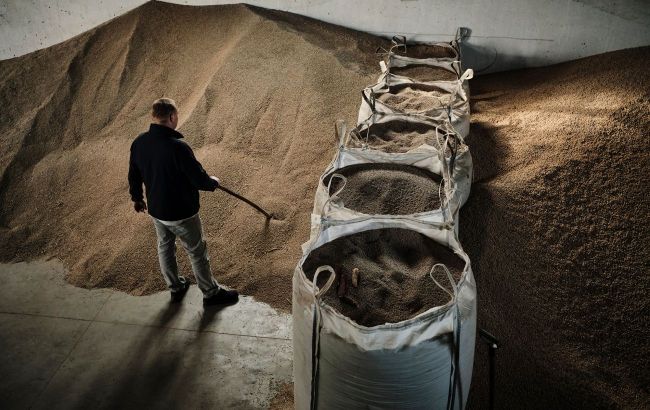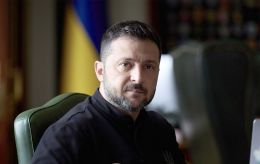Czechia to propose banning import of Russian grain to Europe
 Photo: Czechia will propose banning the import of Russian grain to Europe (Getty Images)
Photo: Czechia will propose banning the import of Russian grain to Europe (Getty Images)
Next week, during the European Council meeting, Czechia will propose banning grain import from Russia and Belarus to EU countries, stated by Marek Vyborny, the Minister of Agriculture, in a program on Czech television.
"We will insist that grains and oilseeds be included in the list of sanctions and not travel to Europe," Vyborny emphasized. Prime Minister Petr Fiala will present the Czechia's position at the next European Council meeting.
According to Eurostat, last year, the Union imported 1.5 million tons of grain from Russia, exceeding pre-war volumes in Ukraine. For example, Spain, facing crop failure, significantly increased its imports.
"There is no reason why we should support the aggressor by buying Russian grain in Europe," Vyborny added. According to him, Czechia does not expect a sudden increase in prices for products after a possible ban on the import of Russian grain, as there are "surpluses" there. Margita Balashtikova (ANO), a member of the parliamentary committee on agriculture and the shadow agriculture minister, supports the ban but believes it will be difficult to implement. "Customs checks, sealing of wagons will be needed, otherwise traders may circumvent this," she noted.
Vyborny refuted information about contaminated grain being imported into Czechia from Ukraine, which was recently made public by former Prime Minister and ANO movement leader Andrej Babis. According to the minister, only in three samples of fodder grain was a slight exceedance of the norm found.
The Lithuanian Seimas is calling for a ban on the import of Russian and Belarusian grain into the EU. Viktoras Pranckietis, the Chair of the Committee on Rural Affairs, noted that with this resolution, they aim to consolidate the parliaments of all EU countries so that a joint European decision is made and individual countries do not have to impose bans separately.
Additionally, the European Parliament has called for an urgent embargo on agricultural products from Russia. On behalf of the largest group in the European Parliament, the European People's Party, Polish MEP Andrzej Halicki urged for the immediate imposition of an embargo on Russian agricultural products. He noted that his colleagues are awaiting a draft law from the European Commission to be presented at the EU Council meeting.

